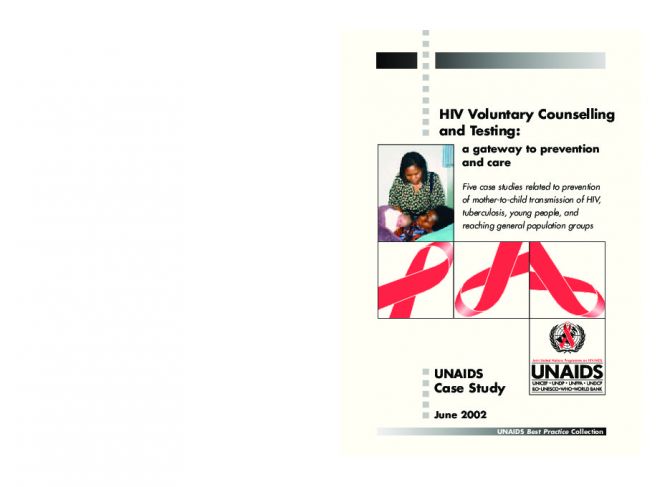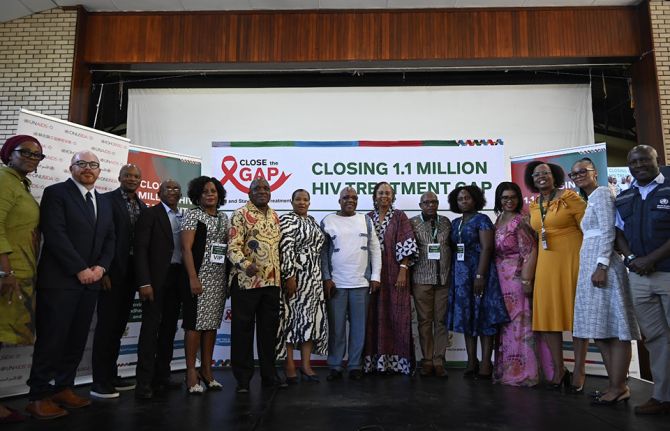Documents
HIV voluntary counselling and testing : gateway to prevention and care. Five case studies related to prevention of mother-to-child transmission of HIV, tuberculosis, young people, and reaching general population groups
05 July 2002
HIV voluntary counselling and testing (VCT) is the gateway to both prevention and care, playing an important role in helping people to change their sexual behaviour and thus reduce HIV transmission. VCT services are being more widely promoted and developed and many countries are gradually instituting VCT as part of their primary healthcare package. The aim of this booklet is to describe the experiences of, and challenges faced by, five programmes in sub-Saharan Africa, which developed effective practices and implemented successful approaches to VCT in relation to four key thematic areas: prevention of mother-to-child transmission (PMTCT); tuberculosis (TB); young people; and general population groups. The programmes operate in low-resource settings and many of the experiences and lessons learnt may be transferable beyond country and culture, and strengthened through community mobilization and public policy measures. This booklet highlights the need for VCT not to be seen as a uniform intervention but as a flexible service that can be adapted to the needs of the population it serves.
Related
What the data tell us: Projections for the HIV epidemic in western and central Europe and North America in 2030
28 March 2025
What the data tell us: Projections for the HIV epidemic in the Middle East and North Africa in 2030
28 March 2025
What the data tell us: Projections for the HIV epidemic in eastern Europe and central Asia in 2030
28 March 2025
What the data tell us: Projections for the HIV epidemic in Asia and the Pacific in 2030
28 March 2025
What the data tell us: Projections for the HIV epidemic in western and central Africa in 2030
28 March 2025
What the data tell us: Projections for the HIV epidemic in eastern and southern Africa in 2030
28 March 2025
 U=U can help end HIV stigma and discrimination. Here’s how
U=U can help end HIV stigma and discrimination. Here’s how

27 February 2025


